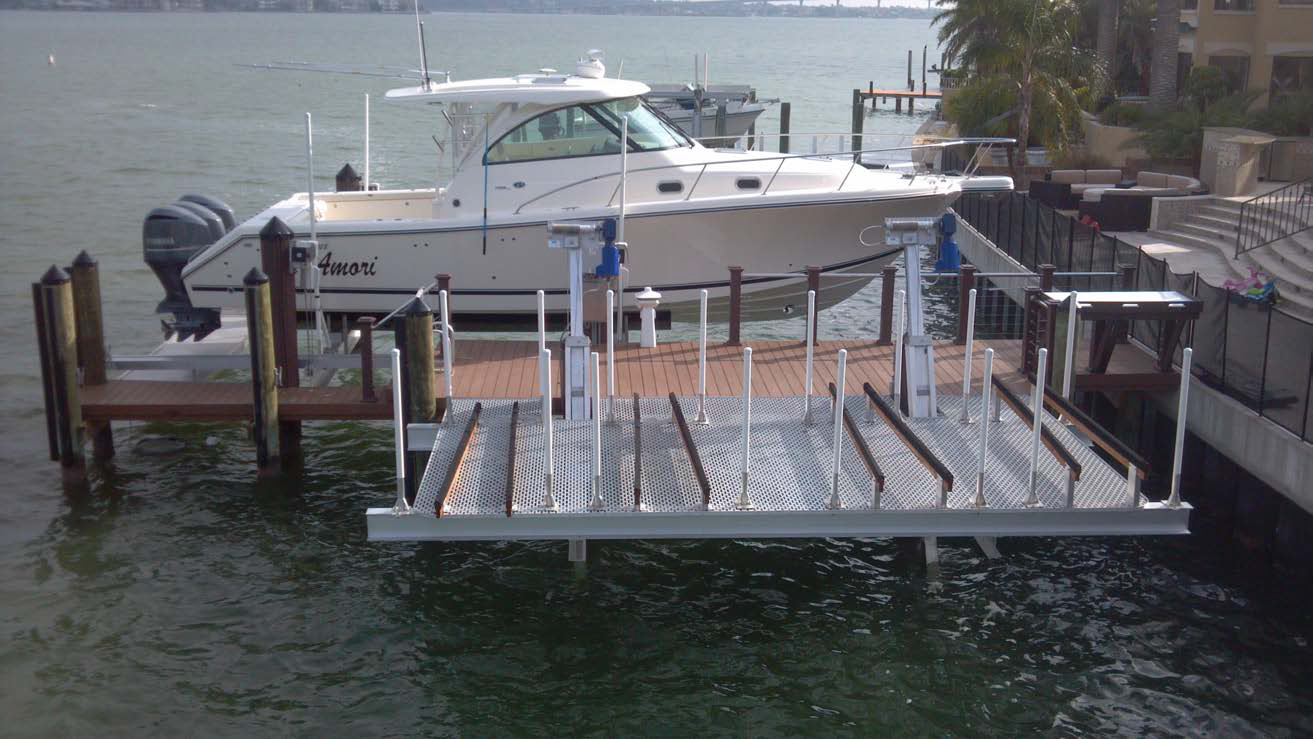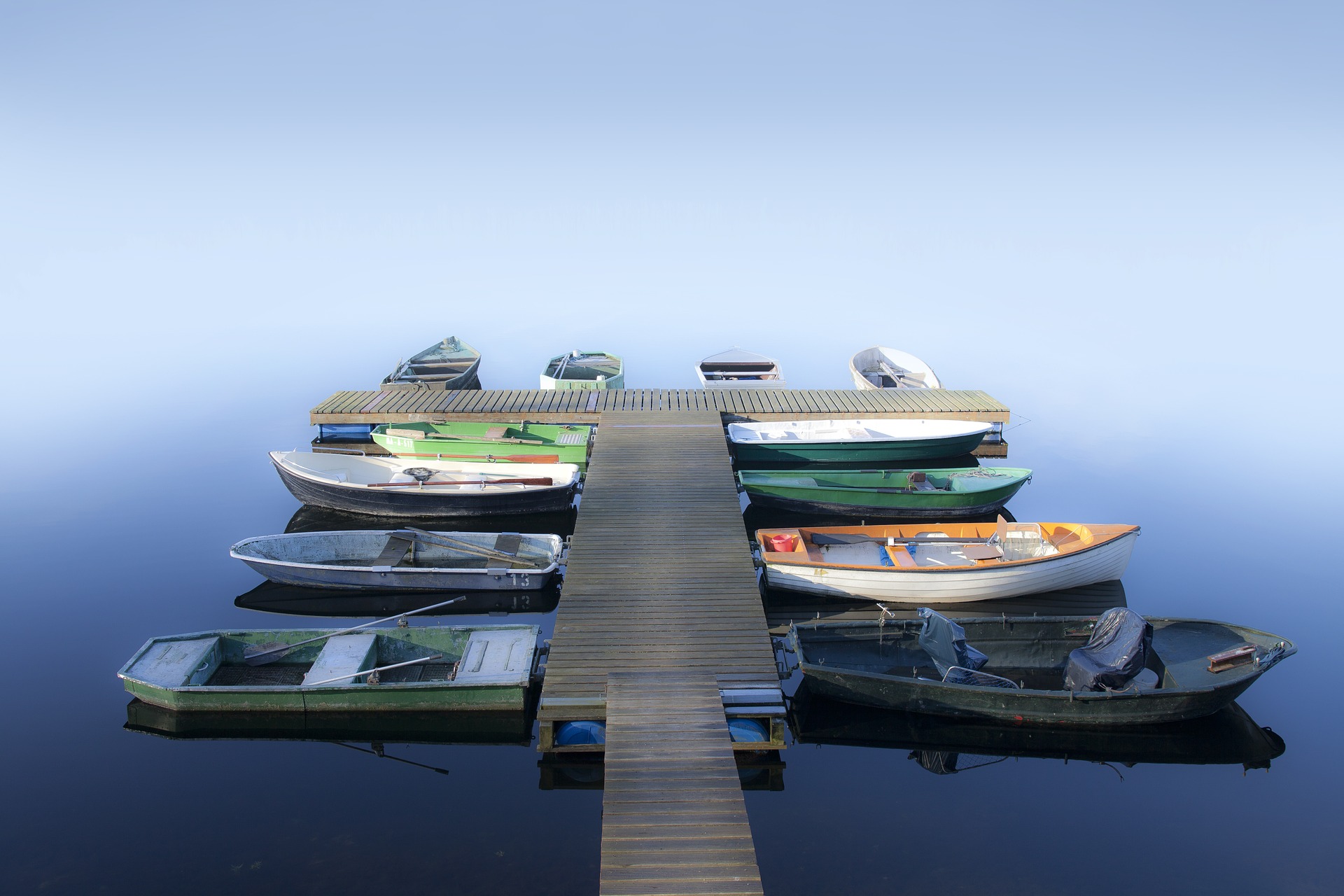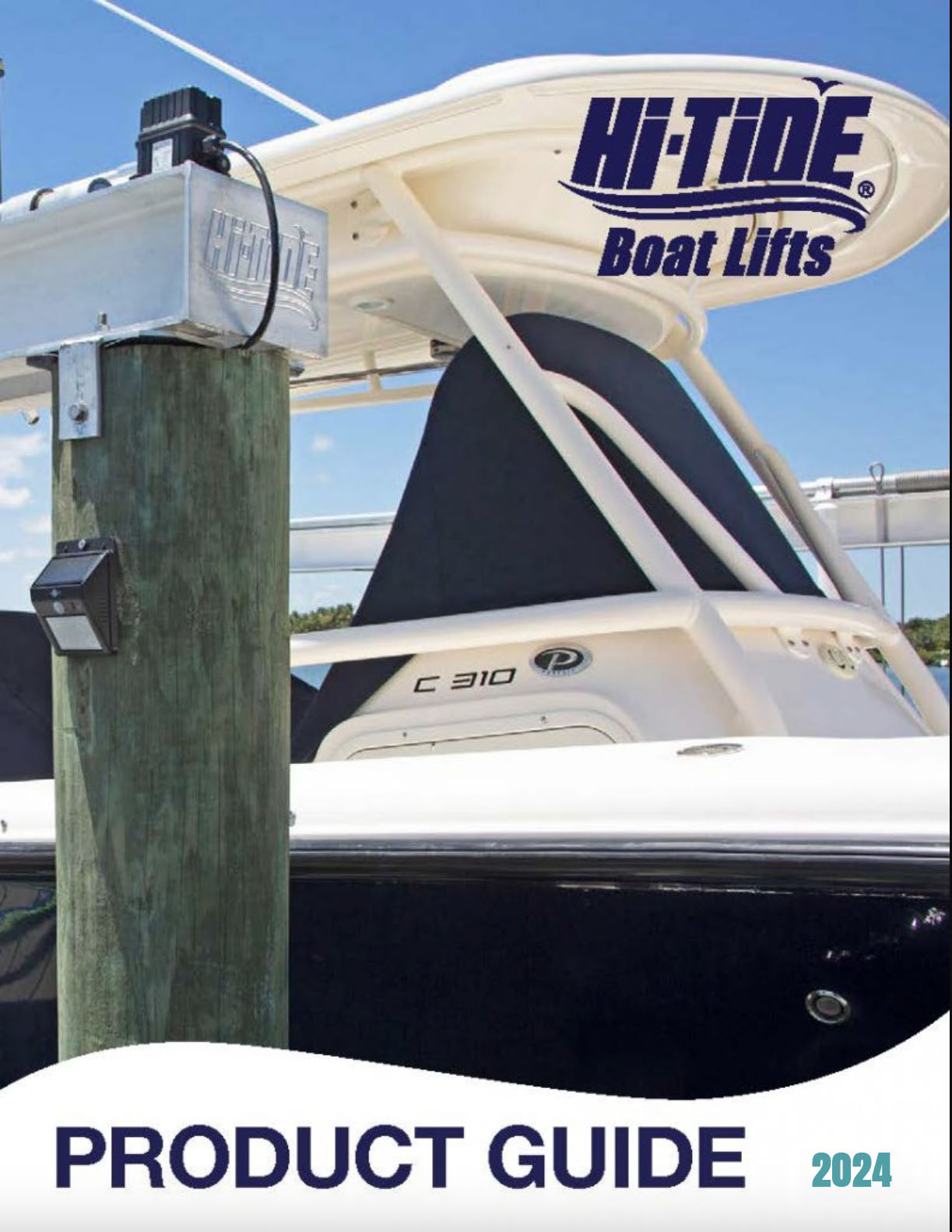
From sweltering heat to monsoon-like downpours, The Sunshine State has weather that’s just a tad on the extreme side. That being said, your boat is bound to take a beating. How can you protect your boat from suffering while out in the elements? From boathouses to waxes, we have a few suggestions to keep your boat shipshape in Florida’s famous sunshine.
How Can I Protect My Boat From the Elements?
- Rinse and Repeat: A vital first step to keeping your boat protected is to clean up your act the right way. Wax and other protectants will not work correctly if you don’t clean your boat thoroughly. Only use boating-specific soaps, however, since some soaps may actually repel the protective waxy coat, you may apply this later.
- Wax On, Wax Off: Though not a necessary step after every boating trip, you should absolutely take the time and energy to wax your boat after washing it. Similar to the benefits of waxing your car, a thoroughly waxed boat will not only have a beautiful sheen but will also be protected from the sun’s ultraviolet rays. Again, ensure that you use a boating-specific wax to ensure that you’re using the right tool for the job.
- Welcome Home: Consider utilizing a boathouse. Boathouses have been used for ages to protect boats from the elements, safely shading them from the sun and rain. With boat lifts made specifically for boathouses, your vessel can be safer than ever.
Though boating is a great way to enjoy some fun in the sun, don’t forget that that very sunshine can cause big issues for your boat’s finish. Prepare by washing your boat regularly, waxing on occasion and keeping your vessel under the cover in a boathouse. Just remember, keeping your boat clean isn’t all about looks; regularly cleaning and waxing is important for both the resale value and long-term care of your vessel.

Aluminum; the first thing that comes to mind may be a classic can of soup, but for many boaters, aluminum plays a big part in many aspects of their sea-faring lifestyle. Though you may assume that other compounds would make for better building materials on the water, you may have underestimated the durability of this trusted metal. Though we are, by no means, discounting the benefits of fiberglass in boat building, we’d like to explore just why aluminum is our choice metal for so many of our boat lifts and accessories.
Three Major Benefits of Aluminum
- Weight: To give some perspective on just how lightweight aluminum is compared to other metals of comparative strength, it is just ⅓ the weight of steel. Due to this weight advantage, aluminum parts and products can be made thicker for added strength that would otherwise be significantly weighed down.
- Proven Track Record: Aluminum is used by a few folks you may have heard of: NASA, the U.S. Army and the U.S. Air Force, just to name three. From Humvees to F-16 fighter jets, if it’s proven in battle, it’s good enough to keep your boat safe.
- Strength: Certain aluminum alloys can match and even beat the strength of some steel, the strongest of which can handle 72,000+ pounds per square inch. Anti-rust and anticorrosive properties are two other benefits of aluminum that make it perfect for boat lifts and accessories in fresh and saltwater scenarios.
For the above reasons and more, aluminum is the tough and tenacious material that we choose to use in so many of our very own products. Take, for instance, our aluminum elevator lifts. You need to know that your lift won’t begin deteriorating while you plan your next boating adventure, or be damaged by frequent usage. Trusted in space, in war and yes, even in saltwater, aluminum will not let you down when choosing your Hi-Tide boat lift.
Information and data gathered from: http://www.aluminum.org/strength-aluminum

Water, especially water with high salinity, can be a big headache to many a metal surface if not properly protected. Unfortunately, many first timers and novice boaters do not know how to prevent corrosion on their vessel, often leading to costly repairs. Others fail to see the warning signs or truly understand how corrosion begins. We take a look at this ugly and potentially costly problem in order to discover the best methods of prevention.
Two Common Types of Corrosion
Stray Current Corrosion: Coming from internally or externally, this type of rapidly corroding reaction occurs when poorly insulated wiring causes electrical currents to run through the metal of your boat to reach a ground. A galvanic isolator is a viable solution for this fashion of corrosion, though it is also important to ensure that all of your wiring is properly insulated and secure as well.
Galvanic Corrosion: If two, electrochemically different metals are submerged in an electrolyte-heavy liquid, you’re bound to find corrosion. This is most prevalent in boating when looking at parts that use both aluminum and stainless steel. Since stainless steel is more active than aluminum, you may find that your aluminum parts show signs of corrosion more quickly than the steel. To help prevent this issue, many boaters use sacrificial anodes, designed to attract this corrosion away from the important and pricey parts that would otherwise be sacrificed. Look out for paint blistering and chipping away, as well as a whitening effect on your metals.
Though there are other forms of corrosion that pose a danger to your vessel, these are the two that can be the most dangerous and destructive. Ask a boating professional for further tips on what to look for when inspecting your boat, as well as how to prevent corrosion after enjoying your time on the water. A little preparation can go a long way towards saving you big money on your boat.
For more on understanding corrosion: BoatUS.com

Though many Florida boaters are happy to frequently hit the saltwater seas due to our close proximity to the Gulf of Mexico and Atlantic waters, many others take advantage of our smattering of fresh, inland waters. Whether pleasure cruising on the St. Johns River or fishing for largemouth bass on Lake Okeechobee, there is no shortage of inland waters to explore in The Sunshine State.
Though, in general, the same laws and best practices apply whether in fresh or saltwater, there may be a few differentiators you should consider before switching from lake to ocean boating.
Factors to Consider Before Switching to Saltwater
- Saltwater is very corrosive, making rinsing your boat with freshwater after trips on the ocean a necessity to avoid damage over time.
- Boats and ships regularly used in saltwater can have reduced life expectancies, due to the corrosive nature of saltwater.
- Engines should be flushed after use in saltwater to avoid damage.
- Drinking and boating laws do not change on inland waters.
- In general, no major modifications need to be made to allow your boat onto both fresh and saltwater bodies of water.
Our main takeaway: Florida is full of both inland waters and open ocean that are ripe for boating, fishing and fun. Be sure to note and respect the corrosive power of saltwater, especially after your trip, when a simple wash and rinse may help you avoid costly repairs down the road. Follow boating laws and best practices and enjoy your time on fresh and salt waters safely while keeping these differentiating factors in mind.

“Boating is too expensive.” “Boating is too hard.” “I caught an 8-foot marlin off the coast of Panama in the early 1980’s.” Boating culture is full of tall tales. Unfortunately some of these myths enter the echochamber with ill intent, keeping people that would otherwise love their time on the water landlocked in fear and doubt based on exaggerations or lies. Check out our hand-selected list of some big myths that surround boat ownership, as well as an important reminder for those already on the water.
Boat Ownership Myths
- Pay to Play: Is buying a boat the surefire way to end up in debt that many (often non-boaters) claim it to be? We certainly hope not, but let’s break down some facts. Boats do require an investment of time and money, due to upkeep costs, insurance, gas and more. However, if you place the costs of boat ownership in comparison to other leisure activities such as a season of skiing or golfing with your family, the cost is actually smaller than you’d think. With many boat dealers offering helpful financing options, there may be less between you and the boat of your dreams than you’d think.
- Boating for Dummies: Isn’t boating extremely difficult and complicated to do without years of experience? Well, like most skills, it’s often easier the more often you do it. This is where the widely available safety and boating basics courses can make a big difference in your confidence and competence when setting off on your first boat trip.
- DUI Still Applies: Drinking and boating isn’t nearly as dangerous as drinking and driving, right? Wrong. According to Boat U.S. Foundation, nearly half of all boating accidents involve alcohol. As mentioned above, driving a boat is skill-based activity. If your skills are hindered due to inebriation, you cannot captain your boat as safely or efficiently as you could sober. Florida law doesn’t mince words: boating with a blood-alcohol level of .08 or higher is illegal.
The bottom line is, we love boating and would love nothing more than to share that passion with others interested in jumping into this wonderful hobby and lifestyle. Do your research, learn the hard facts and, hopefully, we’ll see you on the water soon!






